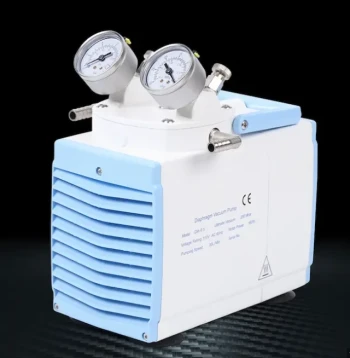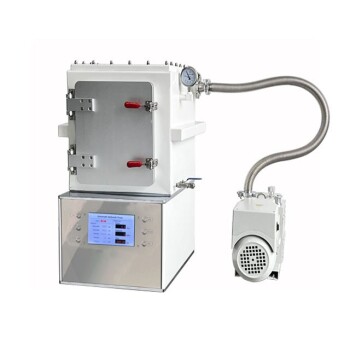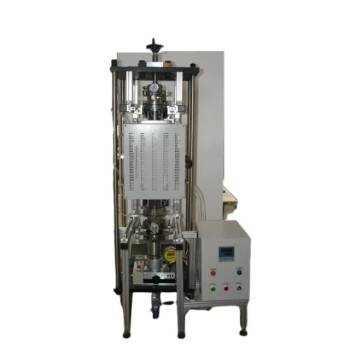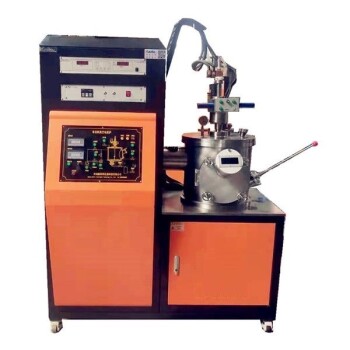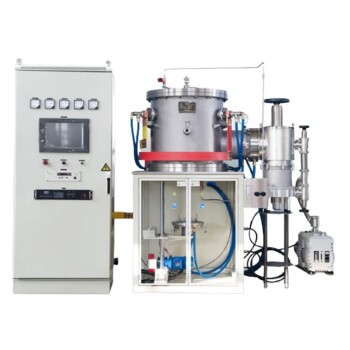In essence, a vacuum pump is a tool for control. Its primary advantages stem from its ability to precisely manipulate an environment by removing air and other gases, leading to enhanced efficiency, superior product quality, significant cost reductions, and improved environmental and safety outcomes across countless industries.
The true value of a vacuum pump lies not just in creating an empty space, but in the precise environmental control it provides. Understanding the trade-offs between different pump technologies—most notably dry versus lubricated—is the key to unlocking the right set of advantages for your specific goal.
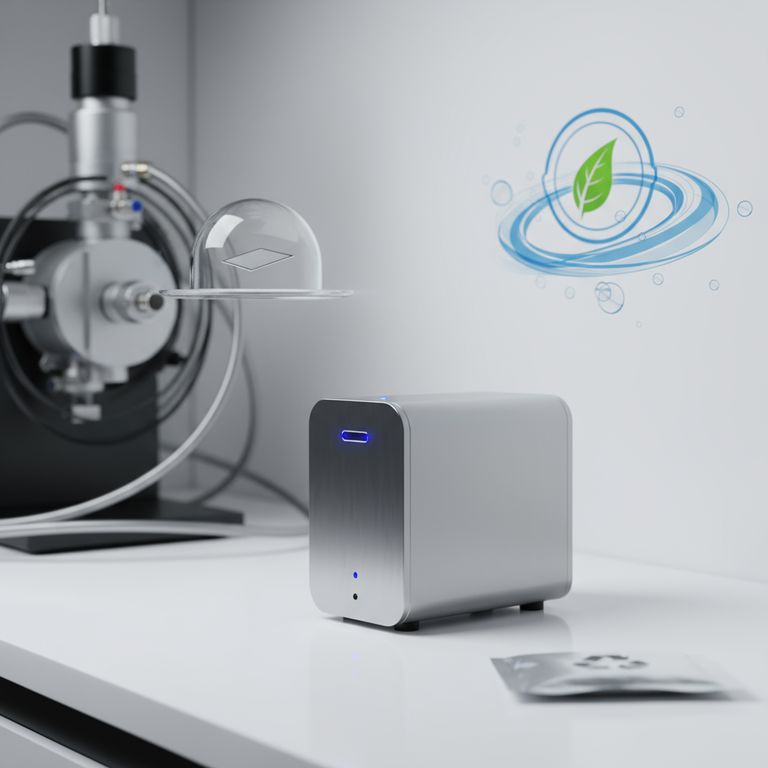
The Four Pillars of Vacuum Pump Advantage
The benefits of using a vacuum pump can be understood through four core areas where they deliver tangible value.
Enhancing Operational Efficiency
A vacuum environment removes air resistance and other gaseous obstructions. This allows mechanical processes to run faster and with less energy consumption.
By creating a pressure differential, vacuum pumps are also highly effective tools for moving materials, from hazardous waste in a lab to products on a production line, without direct mechanical contact.
Improving Product Quality and Purity
Removing air and water vapor is critical in many processes to prevent unwanted chemical reactions like oxidation. This is essential in industries like electronics manufacturing and chemical processing.
For applications in the agri-food, pharmaceutical, or medical sectors, eliminating contaminants is non-negotiable. This is where specific pump types, like oil-free dry pumps, are critical for preventing contamination and ensuring product purity.
Reducing Operational Costs
Increased efficiency directly translates to lower costs. Faster cycle times mean higher throughput and less energy used per unit produced.
Furthermore, robust pumps are built for durability, extending equipment lifespans. By enabling secure and contained handling of materials, they also reduce costly spills, waste, and cleanup efforts. Certain pump types, like rotary vane pumps, are noted for being highly cost-effective compared to other vacuum technologies.
Supporting Environmental and Safety Goals
Modern vacuum pumps are designed for energy-efficient operation, which directly lowers a facility's carbon footprint.
They also play a vital safety role by enabling the secure handling of hazardous materials and toxic waste, preventing their release into the environment and protecting personnel from exposure.
Understanding the Trade-offs: Dry vs. Lubricated Pumps
Choosing a vacuum pump is not a one-size-fits-all decision. The most significant trade-off is often between dry and lubricated pump technologies.
The Case for Dry Pumps
Dry vacuum pumps use no oil in the pumping chamber, which completely eliminates the risk of oil-based product contamination. This makes them the standard for sensitive applications like food processing.
They also tend to require less routine maintenance and are highly versatile, as they can be easily detached and moved between different types of equipment without fluid management concerns.
The Limitations of Dry Pumps
The primary drawback of dry pumps is their increased sensitivity to moisture and high operating temperatures. They may not be suitable for applications involving high water vapor loads without appropriate upstream protection.
The Case for Lubricated Pumps
Lubricated pumps, often using oil as a sealant and lubricant, are known for being highly resilient, efficient, and capable of achieving high performance levels. The fluid helps them withstand wear and manage heat effectively.
The Limitations of Lubricated Pumps
The clear disadvantage is the risk of oil contamination, which makes them unsuitable for food, medical, or other high-purity applications.
They also require regular and frequent maintenance. The oil must be monitored and changed, with some references suggesting service intervals as frequent as every 12 operating hours.
Making the Right Choice for Your Application
Your specific goal determines which type of vacuum pump is the correct tool for the job.
- If your primary focus is product purity (food, pharma, electronics): A dry vacuum pump is the only choice to eliminate the risk of oil contamination.
- If your primary focus is high performance in a rugged industrial environment: A lubricated pump offers superior resiliency, but you must commit to its maintenance schedule.
- If your primary focus is a balance of cost, size, and general performance: A rotary vane pump often provides the most versatile and cost-effective solution for a wide range of applications.
- If your primary focus is safety and environmental compliance: Prioritize pumps specifically designed for hazardous material handling and those with documented high energy efficiency.
Ultimately, selecting the right vacuum pump gives you the power to control your process and achieve your desired outcome.
Summary Table:
| Advantage | Key Benefit | Ideal Pump Type |
|---|---|---|
| Enhanced Efficiency | Faster processes, lower energy use | Rotary Vane, Dry Pumps |
| Improved Quality/Purity | Prevents oxidation, eliminates contamination | Dry Pumps (Oil-Free) |
| Reduced Operational Costs | Lower energy, less waste, higher throughput | Rotary Vane, Lubricated Pumps |
| Environmental & Safety | Secure hazardous handling, lower carbon footprint | Energy-Efficient Models |
Ready to harness the power of precise vacuum control in your lab or production line?
KINTEK specializes in providing the ideal lab equipment and consumables, including vacuum pumps tailored for your specific application—whether your priority is ultimate purity, maximum durability, or cost-effective performance. Our experts will help you select the right technology to enhance your process efficiency and achieve your quality goals.
Contact KINTEK today for a personalized consultation!
Visual Guide
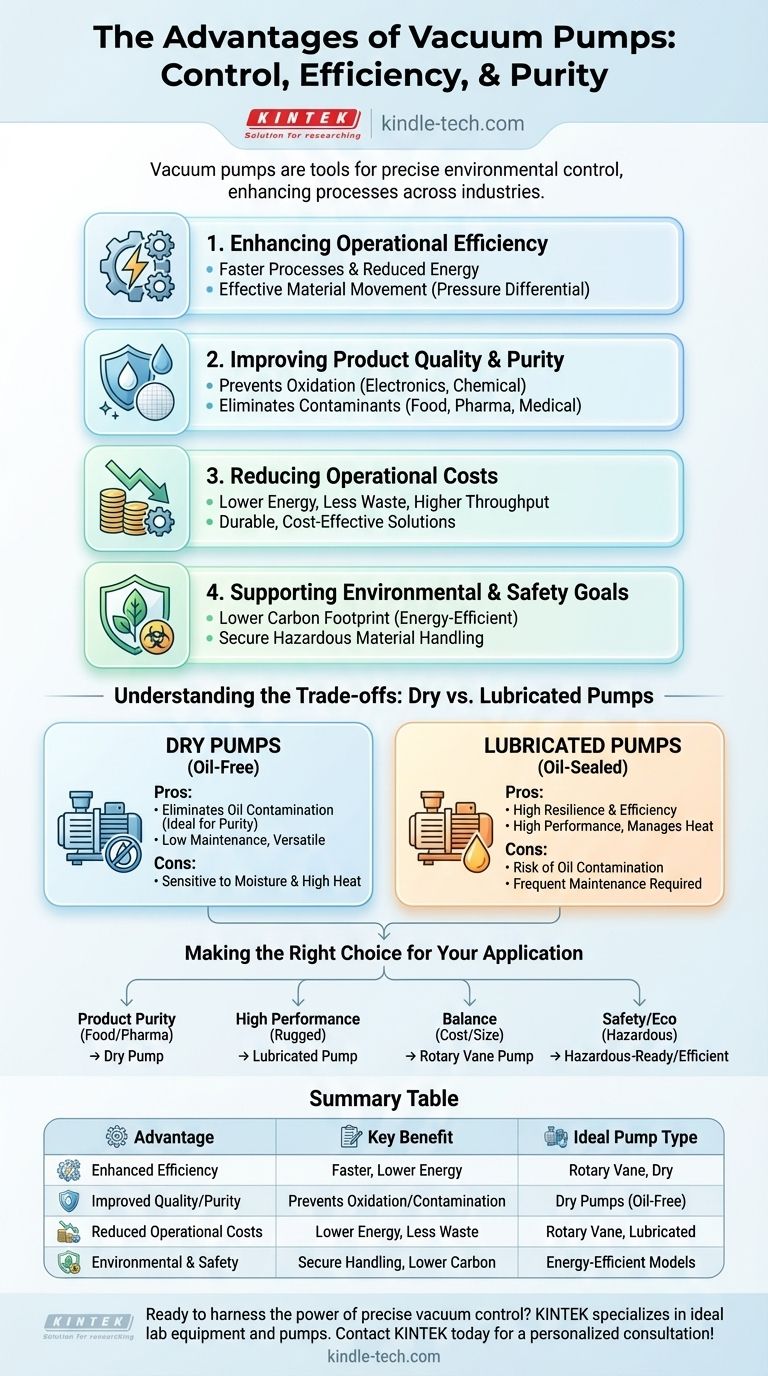
Related Products
- Circulating Water Vacuum Pump for Laboratory and Industrial Use
- Oil Free Diaphragm Vacuum Pump for Laboratory and Industrial Use
- Laboratory Vertical Water Circulating Vacuum Pump for Lab Use
- Laboratory Benchtop Water Circulating Vacuum Pump for Lab Use
- Laboratory Rotary Vane Vacuum Pump for Lab Use
People Also Ask
- What is the function of a quartz glass sleeve in hot pressing? Enhance Al-Si/Graphite Composite Purity & Strength
- Why are high-precision temperature-controlled heating stages necessary for Ni-Cr alloys? Ensure Accurate RIS Results
- What is the importance of a magnetic stirring heater equipped with a reflux device? Boost Fe3O4@SiO2 Amino-Modification
- How do condensation systems and gas washing bottles ensure bio-oil recovery? Maximize Pyrolysis Quenching Efficiency
- What combined factors create the need for highly specialized ceramics for pusher plates in high-temperature hydrogen furnaces?
- How does the design of a sample basket impact the process results in the cyclic testing of energy storage materials?
- What critical role does a Laboratory Stirrer play during leaching? Enhance Titanium-Magnesium Waste Recovery
- What is the role of a reflux condenser in high-temperature acid leaching? Maintain Constant Volume and Concentration

